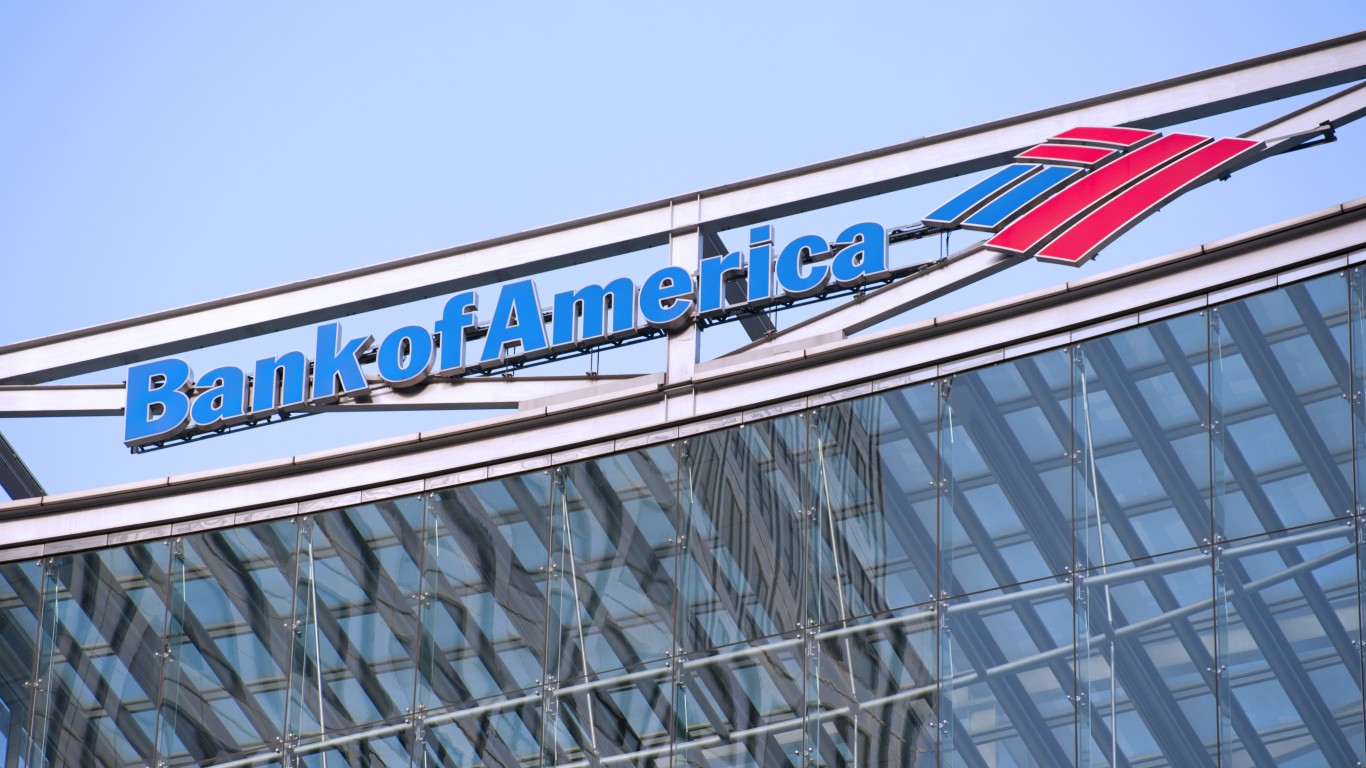
Bank of America Corp. (NYSE: BAC) reported fiscal third-quarter 2020 results before markets opened Wednesday. The big bank said it had diluted earnings per share (EPS) of $0.51 on revenue of $20.3 billion. In the same period a year ago, BofA posted EPS of $0.56 on revenue of $22.8 billion. Third-quarter results also compare to the consensus estimates for EPS of $0.49 on revenue of $20.8 billion.
Net income fell from $5.8 billion in the same period a year ago to $4.9 billion, and net interest income dropped by 17% to $10.1 billion while noninterest income dipped by 4% to $10.2 billion. The bank had an income tax benefit of $300 million and noninterest expense fell by 5% to $14.4 billion. BofA just couldn’t overcome the decline in interest income.
Credit loss provision totaled $1.4 billion in the quarter, down sequentially from $5.1 billion. BofA said that the impact of COVID-19 in its commercial division was the primary reason for a $600 million year-over-year increase.
Net charge-offs increased by $163 million to $972 million, and the net charge-off ratio rose year over year from 0.34% to 0.45%.
BofA CEO Brian Moynihan said, “As the economy continued to recover, we generated nearly $5 billion in earnings this quarter, reflecting the diversity of our business model, our industry-leading market position and digital capabilities, and our adherence to responsible growth.”
The bank did not provide guidance in its earnings release. The consensus estimate for fourth-quarter EPS is $0.43 on revenues of $20.15 billion. For the full 2020 fiscal year, the consensus forecast calls for EPS of $1.68 on revenues of $86.43 billion.
The bank’s lower net interest income was the result of lower interest rates and lower loan levels. Unlike some other big banks, BofA was not able to offset the lower interest rates with trading income that also declined sequentially.
Shares traded down by more than 2% in Wednesday’s premarket to $24.39. The current 52-week range is $17.95 to $35.72. Analysts had a 12-month consensus price target of $28.80 before results were announced. BofA pays a dividend yield of 2.89%.
Are You Still Paying With a Debit Card?
The average American spends $17,274 on debit cards a year, and it’s a HUGE mistake. First, debit cards don’t have the same fraud protections as credit cards. Once your money is gone, it’s gone. But more importantly you can actually get something back from this spending every time you swipe.
Issuers are handing out wild bonuses right now. With some you can earn up to 5% back on every purchase. That’s like getting a 5% discount on everything you buy!
Our top pick is kind of hard to imagine. Not only does it pay up to 5% back, it also includes a $200 cash back reward in the first six months, a 0% intro APR, and…. $0 annual fee. It’s quite literally free money for any one that uses a card regularly. Click here to learn more!
Flywheel Publishing has partnered with CardRatings to provide coverage of credit card products. Flywheel Publishing and CardRatings may receive a commission from card issuers.
Thank you for reading! Have some feedback for us?
Contact the 24/7 Wall St. editorial team.
 24/7 Wall St.
24/7 Wall St.


